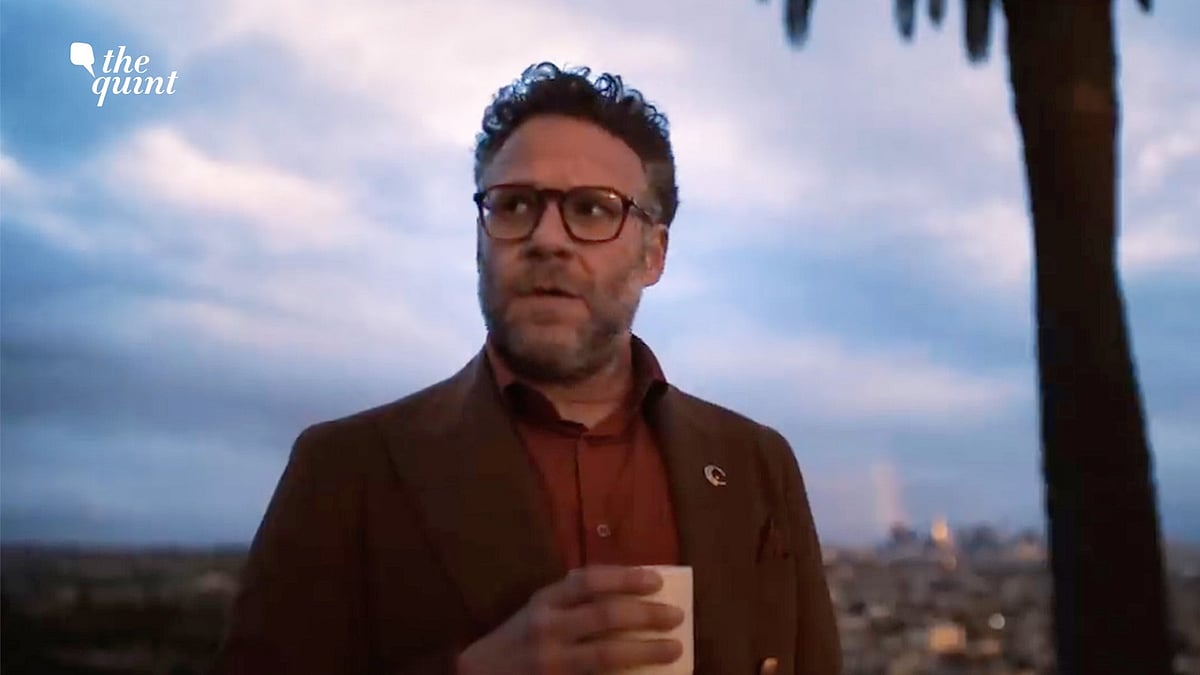The Studio: A Star-Studded Satire of Hollywood's Power Struggles
'The Studio' shows Hollywood as both factory and farce. That’s why it’s consistently comical.

advertisement
With The Studio, creators Seth Rogen, Evan Goldberg, Peter Huyck, Alex Gregory, and Frida Perez tackle the age-old conflict between filmmaking as art and filmmaking as commerce—now central to an IP-forward, AI-infested media landscape. The series begins with well-intentioned, nerdy film lover Matt Remick (Rogan) getting promoted as the new head of Continental Studios, a major production company.
Griffin Mill (Bryan Cranston of Breaking Bad fame), Continental’s brash CEO, has only one concern: “I’ve heard you are really into artsy-fartsy filmmaking bullshit,” he says to Matt. The studio is struggling to stay afloat. Griffin hinges Matt’s promotion on procuring the Kool-Aid franchise movie and other blockbuster projects, nothing indie or alternative.
Bryan Cranston in 'The Studio'
(Photo Courtesy:YouTube)
He believes that “prestige films and box office hits … are not mutually exclusive” and that he and his team “can do both and will do both.” As he boldly proclaims, “We are gonna make the auteur-driven, Oscar-winning Kool-Aid film!”
Hollywood's Art vs Commerce Battle
This is a delusion. Over 10 episodes, we see Matt flounder in his role in all kinds of inventive, comedic ways. The Studio epitomises a comedy sub-genre known as cringe comedy, which, according to writer Gary Susman, “is all about the painful laughs derived from the awkwardness of social interaction and around people’s lack of self-awareness.”
Through this conceit, The Studio becomes a clever satire about the disproportionate power that corporations hold in the filmmaking process, dictating what stories can and cannot be told, who gets cast, and so much more, all in the name of profitability and catering to the “market”.
The genuinely exciting, copious guest stars include legendary directors such as Martin Scorsese and Ron Howard, stars like Greta Lee, Dave Franco, Zoë Kravitz, Zac Efron, and Jean Smart, as well as Netflix CEO Ted Sarandos, all playing themselves.
The Guest Appearances
While the joke is mostly on Matt's squirming within his newfound position, these stars wholeheartedly embrace jokes at their own expense, too. Greta Lee laments her movies’ typically low budgets—“like, A24, Past Lives, no money.” She asks Matt to use the studio’s private jets for their film’s press tour in the same breath.
My favourite guest star, however, is Zoe Kravitz in a recurring role. In one episode, she relishes in the faux-modest performance of not caring about winning awards—in this case, a Golden Globe. Yet, she’s rehearsed every beat of her acceptance speech.
At another point, she misunderstands the meaning of an “old-school Hollywood buffet”, leading to the season finale’s electrifying ensemble comedy of errors. It’s bizarre and hilarious storytelling, utterly committed to its own bit.
Attention to the Craft
Then there’s the craft. In the first few episodes, the shooting style mirrors the film being made in that particular episode—an extremely effective device. In episode 2, for instance, Matt is salivating to go on set for a film being directed by Sarah Polley and starring Lee. He wants to see them shoot a “oner”—a long, single take—at sunset.
The episode itself, remarkably, is a oner, a choice that only intensifies the moments of cringe because we can’t release them.
Another standout is episode 4, about a missing reel from a neo-noir detective movie being shot on film. The episode is executed neo-noir-style too, following Matt and his friend and colleague, Sal Saperstein (Ike Barinholtz), around Hollywood, as they locate the missing reel. The suspense of the chase is only matched by the outlandish payoff about who-stole-it and why.
Yet, The Studio’s attention to craft never takes itself too seriously. Instead, it blends seamlessly with the series’ absurd tone, focusing on self-deprecating humour rather than sanctimonious self-indulgence.
Hollywood as Both Factory and Farce
A rogue episode shows Matt dating a doctor, relentlessly trying to convince her and her doctor circle that movies are just as important as medicine. Another episode is titled “Casting”—Matt and his largely white studio executives agonise about which races to include in the Kool-Aid movie’s cast, inadvertently getting themselves in a larger bind.
The Studio shows Hollywood as both factory and farce. That’s why it’s consistently comical, yet frequently insightful and perceptive too. It revels in the movies’ magic dust, while exposing what it’s really made of—an industry of people, power, personalities, and diverging demands.
Owing to its success, The Studio’s studio Apple TV+ has already greenlit a second season. It’s almost too meta.